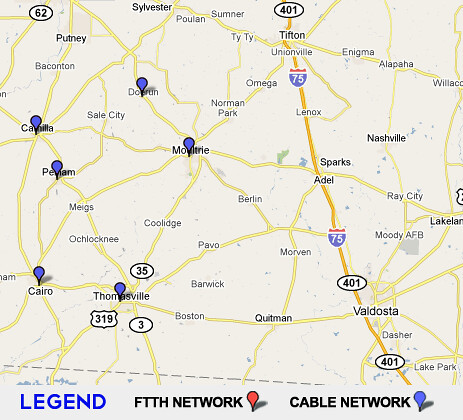Thomas A. Fanning, chairman, president and CEO of Southern Company,
says his company is committed to communities, renewable energy, and
energy efficiency.
So
helping finance municipal refitting and solar projects
should be a natural for Southern Company!
According to PR from Southern Company, 25 May 2011,
Southern Company Holds Annual Meeting of Shareholders
 Fanning also emphasized a continued commitment to the communities the
company serves and stressed the need for a national energy policy and
a robust research and development initiative.
Fanning also emphasized a continued commitment to the communities the
company serves and stressed the need for a national energy policy and
a robust research and development initiative.
“Southern Company keeps customers at the center of every decision
we make,” said Fanning. “We remain committed to providing reliable,
affordable energy for our customers and to do that we need to maintain
a diverse fuel mix as well as stay focused on developing the newest
technologies.”
Referencing a diverse fuel mix, Fanning highlighted the company’s
commitment to nuclear energy, including building the nation’s first new
units in 30 years. He also discussed the importance of preserving coal –
America’s most abundant energy resource – as well as the role of natural
gas, renewable energy and energy efficiency in meeting its customers
energy needs.
“Furthermore, we are the only company in the industry that is doing
it all. We’ve committed more than $20 billion to these efforts,”
Fanning said.
Sure, he listed renewable energy and energy efficiency last.
But this is the same Thomas A. Fanning who said in May that he’s
“bullish” on solar.
The same CEO of the parent company of Georgia Power, which just
connected a 300 kiloWatt solar plant in Lowndes County.
The same CEO who’s being nagged by the Georgia PSC chairman
“to come up with options in the next 30 days for expanding the tiny amount of electricity generated from solar power.”
And a company that spends more than $20 billion on new energy projects
can afford a few tens of millions for community refitting and solar.
-jsq
Google has published an analysis of the economic benefits of renewable energy innovation. It has concluded that even a five year lapse without a national clean energy policy would cost the United States an aggregate US$2.3-3.2 trillion in unrealized GDP gains and 1.2-1.4 million net jobs.










